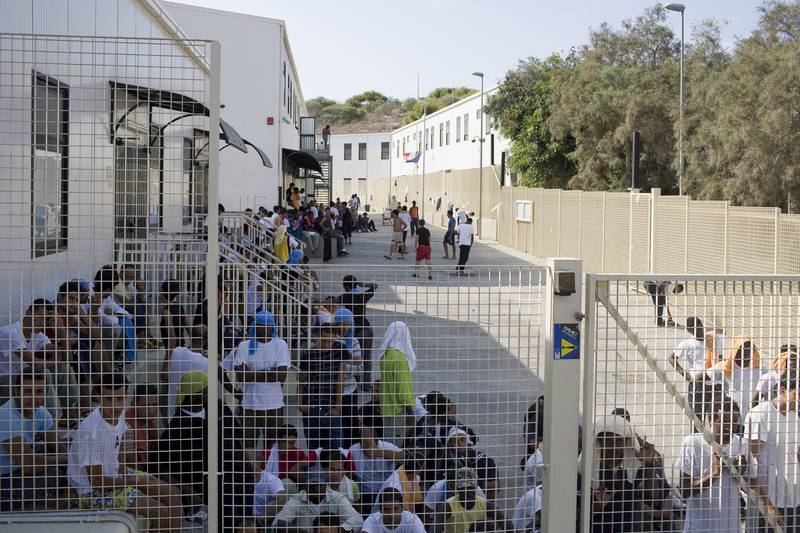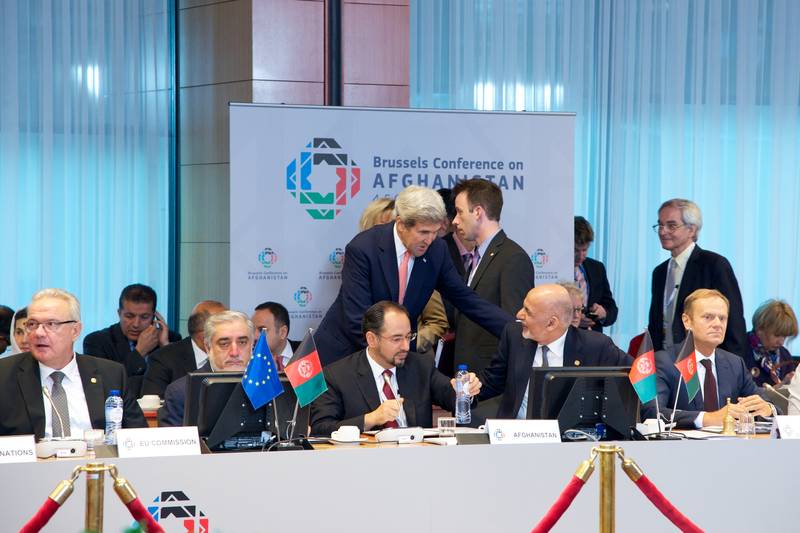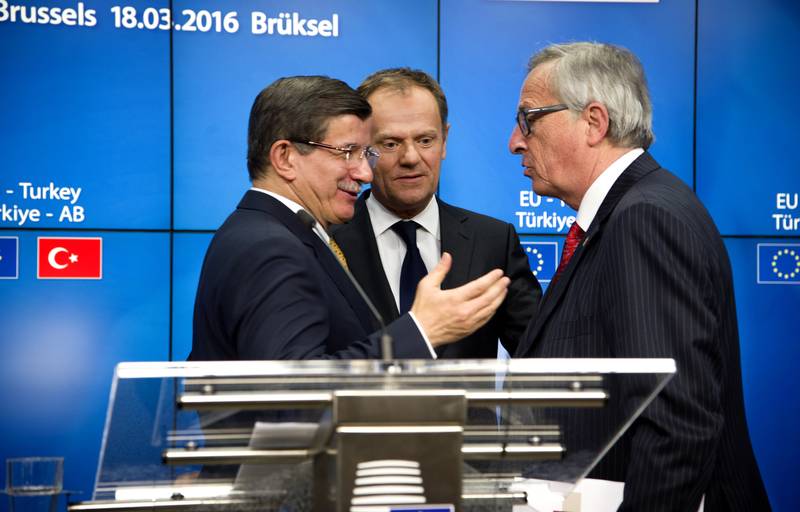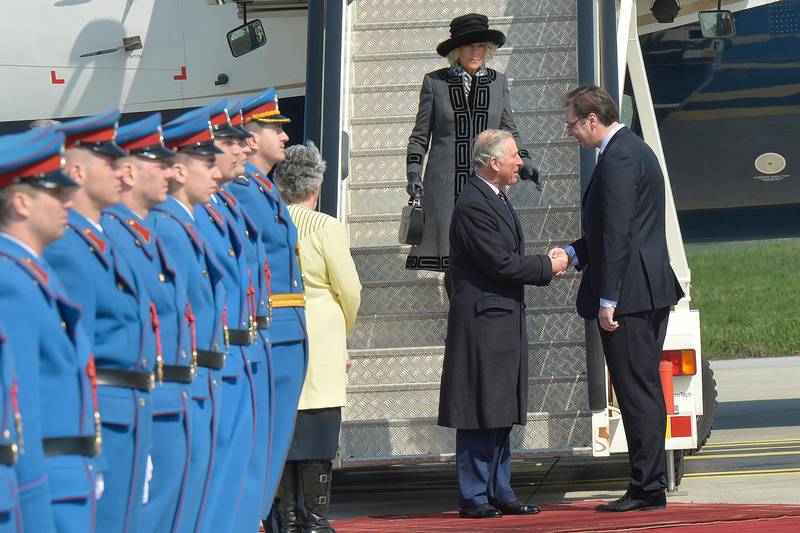The EU Is Disintegrating Before Our Very Eyes
Adelina Marini, September 19, 2015

The day before it was Malta, yesterday were Italy and Greece, and today are Hungary, Croatia, Austria, and Germany. One by one member states are becoming panic-stricken and terrified about how are they going to deal with the tens of thousands of refugees that are trying to get to the EU and find protection. Some of them are fleeing the war in Syria, from Iraq and Afghanistan, as well as the conflicts in Africa, but others are running away from poverty, looking for a chance. While we were busy playing European Union the refugees knew there is no such animal, at least in terms of borders. This is how a state chose the hard line and closed its doors. This gave fuel to fury in the exhausted, hungry and dehydrated crowd of youngsters, adults, and mothers with children. The footage of refugees, beaten by police, running with children in their arms at the backdrop of the sign with the EU stars are the best illustration that the EU is nonexistent. Instead, there is a union of competing states, pointing fingers at each other and slamming the doors shut under each other’s noses.
After the closing of the Hungarian door refugees came to the Croatian one. There they were met humanely, but just 24 hours later politicians in Croatia started to panic. And the usual tranquillity prevails in Brussels. With a tone that shows slight annoyance and exhaustion from asking the same questions for different states the EC’s spokespersons remind President Juncker’s speech on the state of the “Union”, exactly how much money each state has available from the European budget for dealing with the migration challenges, they recite which country sent a notice that it is applying the Schengen exceptions in order to reinstate control at its border with another. Politically, the building of walls is denounced but, legally, it is perfectly fine.
24 hours after Croatia opened hospitably its doors riots broke out in several of the reception centres in the country. Refugees were shouting “freedom, freedom” and asked to leave the country en route for the rich European states. The latter on their side also gave up on hospitality, realising they cannot take in all of the world’s misery. Accusations are raining from everywhere. Some are accusing for the opening of borders, others for their closing, third for the conflicts in the world, fourth for moral principles, and yet fifth are trying to get something out of the whole mess like a Schengen membership for example, or more money. Within the member states accusations are also flying all over – the opposition criticises the government for inaction, or for wrong actions. European institutions keep yelling hysterically, urging member states to accept a proposal that is no longer up to date.
It was already obsolete the moment it was written. Quota distribution is undoubtedly important and adds to the European solidarity, but the problem is common protection of the borders and common treatment of refugees. The most important proposal – the one for boosting Frontex – will be presented by the EC all the way at the end of the year. Until then each state will have to deal on its own with the flow of refugees that need to be processed (and some are refusing), fed, sheltered. The capacities of front line countries are long exhausted and other countries were caught unprepared. The situation is difficult to forecast, but common actions could have done much to reduce the pressure significantly. When refugees are met at the border by employees of Frontex and the European Asylum Support Office, then the message is different - “You have entered the EU”. Meetings between member states would have been necessary only to coordinate the numbers and refresh the quotas. To negotiate common actions on border protection, the transfer of policemen, administration and resources.
No country can evade the refugee wave, for many of these people just have nowhere to go. As Croatian columnist Goran Vojković writes [in Croatian] for the online edition Index, the ones appealing to the young and fit for combat Syrians to go back and fight for Syria are totally unaware of the situation. “To say today to a Syrian to go back to fight for Syria is about the same as if in 1991 the Germans sent back Croatian refugees with the argument ‘You have your Yugoslavia! Why aren’t you fighting for Yugoslavia? You have Milošević too, he keeps mentioning peace’”. Later the author reminds that at the moment Syria is partitioned by four major groups: the forces of Assad, the Free Syrian Army, the al-Nusra Front, and ISIS. To go back would mean joining one of these groups. There is no state there anymore, writes Goran Vojković.
The question now is whether there is a European Union for these people to receive shelter and a new life, and for us too?

Instead of facing the common issue member countries are trying to save themselves individually. And there are much larger and more complex issues ahead, having to do with demographics, economy, and identity. According to a Croatian demographer, the current number of incoming people is negligible compared to what awaits us in the future, namely because all these millions of refugees need to go somewhere. Adding to that, the forecast of the EC that due to climate change there will be climate refugees coming, we can see clearly that the EU is dealing with peanuts at the moment. If problems do not start to get solved one by one at the European level, the highest possible at that, the EU will disintegrate before our very eyes. The current situation looks like we have a EU for peace times, with pompous texts in the founding treaties, but at the sight of crisis every state clings on to its sovereignty and stops caring about their partners’ hardships. To avoid a full disintegration of the Union a common solution needs to be found to the following problems:
Problem №1
Processing refugees. Due to lack of a common approach at the moment everybody going to Europe is piling up at a bottleneck (one state border). The capacities for accepting, sheltering, paperwork processing, according to the current outdated and inadequate legislation, are physically impossibly exhausted. This is why we get to the point where many refugees cross into other countries unregistered. This is precisely how refugees that entered Greece first meet the dawn at the registration desk in Hungary (until recently) or Croatia (since Wednesday). There is a huge number of unregistered people that passed through Hungary and are now arriving in Austria and Germany. From the beginning of this week “hotspots” for processing came in power, but the main burden there again lies on national authorities and often on regional and local ones.
Problem №2
The lack of common security at the borders and a common attitude is a serious problem. This causes pressure at one spot, instead of having the burden fairly shared all along the outside borders of the EU, and later along a following secondary ring. At the moment, every state decides on their own how to react – whether to build fences, whether to let refugees through or not. Practically, at the moment the problem is being transferred from one member state to the other. This is bad both for relations within the EU itself and for relations with third countries. The “every man for himself” approach at solving the problem is a very bad sign to the states aiming at a EU membership and further heightens the tension.
Problem №3
Integration. Where are they to be settled and according to what demographic criteria? Despite the years and the billions of euros put into economic convergence between the old and new members the fact is refugees and economic migrants prefer certain states. Not more than five. This has effectively split the Union into transit countries and destination states. Too unfair. In the short term transit countries pick up most of the burden, but they shed it relatively quickly. In the long run, however, most affected are the destination countries, which can accept no more already, let alone in the future. According to official forecasts, the refugee wave is yet to fully develop. The EU is an ageing continent and most member states suffer from negative population growth. Meaning they need immigration. It would be most successful if it is managed.
This is the spirit of the ideas of the EC as well as several groups within the European Parliament, who insist on a reform of the blue card programme, which was met on an edge during the migration debate in April. Here as well the problem is very large and very old. The EU’s common market is rather a myth, especially pertaining to labour mobility. In some member states the right to work of EU citizens even is difficult, or even restricted, let alone refugees.  The situation is most difficult in the states with high unemployment.
The situation is most difficult in the states with high unemployment.
Problem №4
A common foreign and defence policy approach is missing. At the moment, every member state decides on its own whether it should engage in military action in Syria. The same mistake is being repeated, which many of these states have been accused of creating the current refugee problem in the Middle East. It is high time the EU begins to consider joint action in coordination with the USA and NATO. Direct consequences of the torn and incoherent European foreign policy are the constantly erupting new conflicts, causing huge refugee waves towards Europe.
The EU risks its very existence if it does not immediately find an adequate response to the problem in its short-term and long-term perspective. National egoisms are bringing down the Union brick by brick like even the financial crisis in the Eurozone couldn’t. With its inaction and everyone acting alone the EU is causing a humanitarian catastrophe and allowed the return of pre-WWII rhetoric. A war, because of which the foundations of the EU were built. Did the EU forget it was awarded the Nobel peace prize?
Translated by Stanimir Stoev
 | © Council of the EU
| © Council of the EU Davutoglu, Tusk, Juncker | © Council of the EU
Davutoglu, Tusk, Juncker | © Council of the EU | © Vlada RS
| © Vlada RS